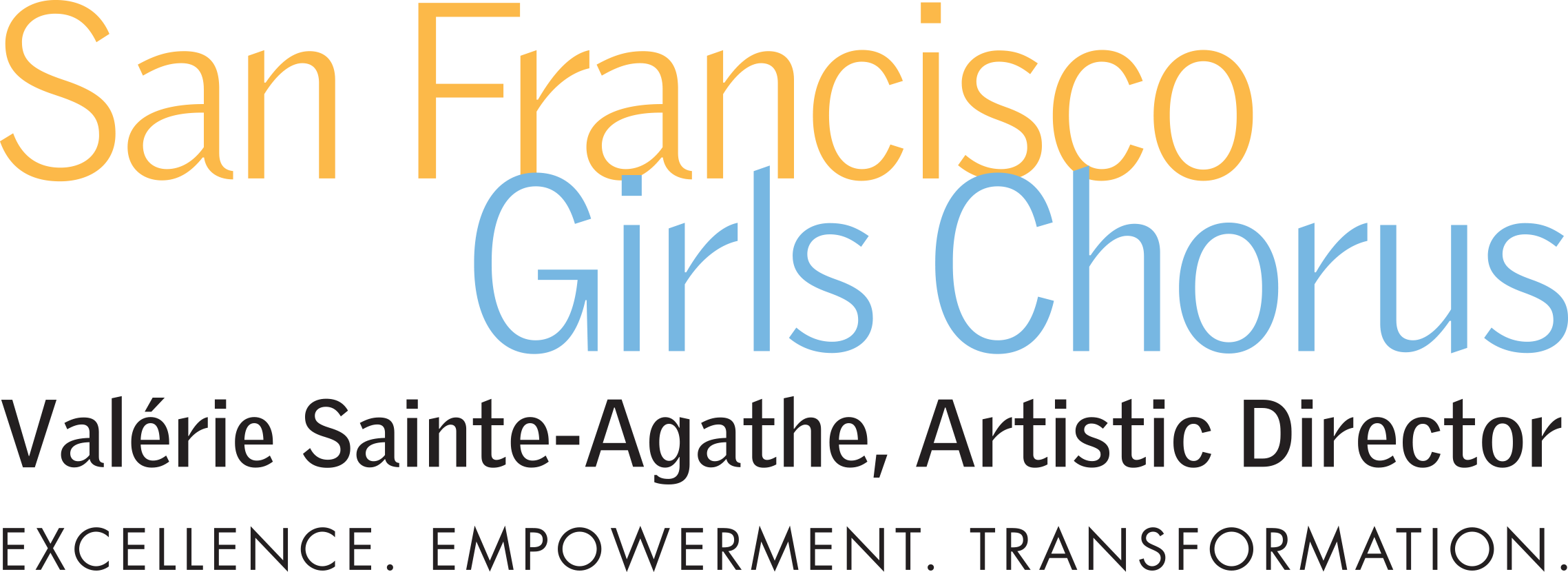Lisa in Korea
 Hello SF Girls Chorus friends, from all the way across the globe in Gwangju, South Korea!
Hello SF Girls Chorus friends, from all the way across the globe in Gwangju, South Korea!
…where I am in the middle of a multi-performance run of Philip Glass and Robert Wilson’s opera Einstein on the Beach. As the vocalist in the Philip Glass Ensemble since 1992 (that’s half my life!), I have done probably over 100 performances of this epic 4+ hour piece. We tour with over 70 people, including the Glass Ensemble itself (six musicians counting myself), a chorus of twelve, an entire dance company, and many many technical crew and designers. Some of you may have seen this production when we performed it at Zellerbach Hall a couple of years ago. Yes, it’s the same tour! We have been on and off the road for over three years now, and it is getting to be very family-like.
It was fun to read Justin’s wonderful postcard from last week, about the German language (also one of my favorites), while here in a place where I am surrounded by a language that I don’t know at all. I was fascinated to learn that the Korean alphabet, in stark contrast to Chinese (which is ancient and has thousands of characters), is a rather recent and scientifically designed written language, using different combinations of horizontal and vertical lines to represent longer and shorter vowels. I don’t know of any other language whose alphabet is a kind of pictograph of how it sounds or feels to speak it. Do you? I’d love to hear! Here’s a little primer, and for those of you who really want to explore just how analytical this alphabetic system is here, check out this explanation of the 14 vowels!
[embed]https://youtu.be/YiqMot3HF3M[/embed]
Sometimes when we tour we have some unsettling cultural surprises, and here is no exception. When we arrived we learned that, although our hotel has a fitness room and a sauna, it is only for men (!!). Fortunately, our company management team anticipated our needs and found us female folk a nearby gym so we can stay fit for the job we need to do. It is so strange to know that right here in this building there is a place where I am not allowed to go because I am a woman! It makes me realize how rare this kind of experience is for us in the US. It is always good to have these little reminders that there are still bigger hurdles for women in many parts of the world.
Happily, the women’s gym is across the street from an establishment that would certainly come in handy in case of emergencies: the Tone-Deafness Clinic!

My role in Einstein is as solo vocalist with the musical ensemble, which means that I largely sing from the pit and not from onstage, and as Choirmaster, which means that I was instrumental in selecting and preparing the singers who are onstage. A couple of these wonderful singers are well known to our community—Joe Chappel was our Noye in Britten’s Noye’s Fludde a couple of years ago, with hundreds of our girls in his fabled zoo. And Greg Purnhagen is well-known to the girls who traveled to Southern CA to be part of my TV opera Vireo, in which he plays the vaguely menacing Doctor/Priest. During the early days of the tour, we also had Robert Wilson’s Assistant Director Charlie Otte with us, but this time he is in SF working with Valerie and her singers, preparing for the upcoming concert with Tenet. We miss you here in Gwangju, Charlie!
Here’s a short scene from the opera that features both Greg and myself:
[embed]https://youtu.be/nPaB0pml2Fk[/embed]
...but here’s the funny part: Greg and Helga Davis are onstage, without microphones, doing the slow stylized action, while one of the tenors and I are in the pit, singing away. Does it look like my voice is coming out of Helga’s mouth? Why or why not? As you all know, Greg is a wonderful singer—and Helga is too! Why do you think they are not singing in this scene, and why do you think my fast-counting friend Philip and I are singing but are not onstage? How can you tell that they are not actually singing? What would be different if they were? Can you tell what words or syllables we are singing (hint: girls, think back to your most recent ear training class!)? What do these syllables have to do with the action onstage? How do the vocal parts express the mood of the scene? Or do they at all?
After just a few more of these performances, I’ll be on a plane zooming towards you all so I can share the “Surprising Freedoms” performance week with you. I am looking forward to seeing you there!
나중에 봐요 – (najunge bayo) see you later,
Lisa
